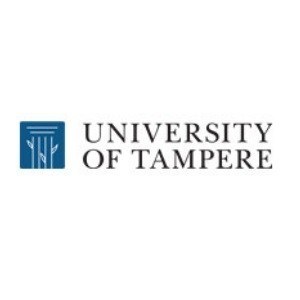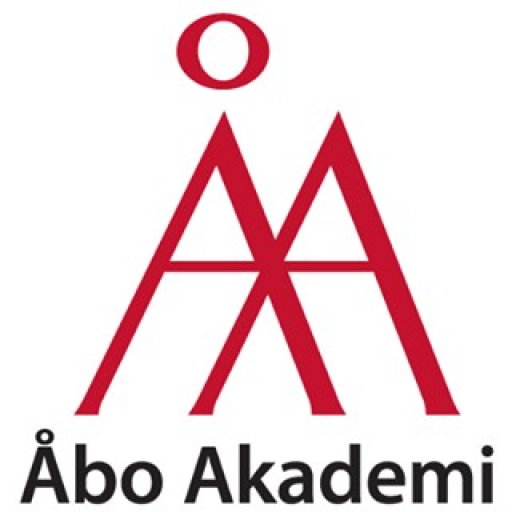Photos of university
The Master's programme in Peace, Mediation and Conflict Research at Tampere University offers students a comprehensive understanding of the causes, dynamics, and resolutions of conflicts worldwide. This interdisciplinary program integrates insights from political science, international relations, sociology, and conflict studies to equip students with the analytical skills necessary to address complex peace and conflict issues. Throughout the programme, students explore various methods of conflict prevention, management, and resolution, including negotiation, mediation, and peacebuilding strategies. The curriculum emphasizes both theoretical foundations and practical applications, providing opportunities for students to learn from experienced practitioners and participate in simulation exercises, workshops, and fieldwork. The programme also focuses on peace processes at local, national, and international levels, examining case studies across different cultural and political contexts to foster a nuanced understanding of conflict dynamics. By engaging with current research and policy debates, students develop the ability to critically analyze peace initiatives and contribute to constructive conflict transformation. The programme prepares graduates for careers in international organizations, NGOs, governmental agencies, and research institutions dedicated to peacebuilding and conflict resolution. With a strong emphasis on ethical considerations and cultural sensitivity, students are encouraged to develop innovative and context-specific approaches to promoting sustainable peace. The Master's in Peace, Mediation and Conflict Research at Tampere University is ideal for those interested in making a positive impact on societies affected by conflict and pursuing careers that require advanced knowledge and skills in peace studies and conflict management.
Masters Degree Programme in Peace, Mediation and Conflict Research provides interdisciplinary approaches to research on the complex issues of peace and conflict in the contemporary world. These approaches aim to facilitate the understanding of the deep roots of wars and conflicts as well as their short and long term consequences.
This Master's Programme also studies the preconditions for conflict resolution and peace in local as well as in international and global contexts. After the first year of study in the programme, students will choose their spezialisation field from the following: Peace and Conflict Research, History, Psychology, Social Anthropology, International Relations or Administrative Science.
Students who select Peace and Conflict Research, History, Psychology, Social Anthropology or International Relations as their specialization field will graduate with the degree of Master of Social Sciences, students specializing in Administrative Science will graduate with the degree of Master of Administrative Sciences. The programme cooperates with the Masters programme at Åbo Akademi University in Vasa which concentrates on Developmental Psychology issues in the field of peace, mediation and conflict research.
Number of study places- A maximum of 15 students are admitted to the programme in the University of Tampere. The number includes the applicants from within the University of Tampere.
The Master’s Degree Programme in Peace, Mediation and Conflict Research at Tampere University requires applicants to hold a Bachelor's degree or equivalent in a relevant field such as social sciences, humanities, or political sciences. Applicants must demonstrate proficiency in English, typically through standardized tests like TOEFL or IELTS, unless they have completed their degree in English or in a country where English is an official language. The programme values prior experience in peacebuilding, conflict resolution, or related fields, although specific professional experience is not mandatory. To apply, candidates must submit an online application form, recent CV, motivation letter, academic transcripts, degree certificates, and language proficiency certificates. Additional documents, such as recommendation letters, may strengthen the application but are not always obligatory. The selection process involves assessment of academic performance, motivation, relevant experience, and potential to benefit from and contribute to the programme. International applicants may need to provide a copy of their passport or identity card. The programme enrolls students through a competitive admission process, and accepted students are notified via the university’s application portal. There are no specific prerequisite courses required before admission; however, familiarity with international relations, conflict theories, and peacebuilding strategies can be advantageous. The duration of the master's programme is typically two years, consisting of coursework, research, and a master’s thesis. Successful graduates earn a Master of Science in Social Sciences or related degree, qualifying them for careers in diplomacy, international organizations, NGOs, or further academic research. Full-time study is expected, with students engaging actively in seminars, workshops, and practical training exercises. The programme may also include international exchange opportunities and interdisciplinary approaches to studying peace and conflict issues.
Financing for the Master’s Degree in Peace, Mediation and Conflict Research at Tampere University is structured to support both national and international students. The program offers a variety of funding options including tuition fee waivers, scholarships, and student loans. Finnish students and students from the European Union/European Economic Area (EU/EEA) benefit from relatively low tuition fees or may qualify for Finnish student grants and loans through the Finnish Student Financial Aid (Kela). International students, particularly those from outside the EU/EEA, are required to pay tuition fees; however, the university provides several scholarship opportunities aimed at promoting diversity and academic excellence. These scholarships are often merit-based and cover partial or full tuition fees, encouraging talented students from around the world to enroll. Additionally, students can explore external funding sources such as government grants, private foundations, and international fellowship programs that support studies in peace and conflict research.
Tampere University also advises prospective students to consider part-time work opportunities available on or near campus, which can help with living expenses. International students should check visa regulations to understand employment possibilities during their studies. The university’s career services provide guidance on internships and employment opportunities that complement academic studies and can serve as a financial resource. Furthermore, students are encouraged to apply early for scholarships to increase their chances of securing funding. The university maintains detailed information on available funding and application procedures on its official website, ensuring transparency and accessibility for all prospective students. Overall, while the cost of studying may vary depending on the student’s origin and chosen funding sources, the program’s financing options aim to make the education accessible and affordable for motivated students committed to advancing peace and conflict research.
The Master’s Degree Program in Peace, Mediation and Conflict Research at Tampere University offers a comprehensive and multidisciplinary education designed to equip students with the necessary skills and knowledge to understand, analyze, and address conflicts at local, national, and international levels. This program focuses on the causes of conflict, conflict prevention, conflict resolution, and peacebuilding processes. Students will explore various theoretical approaches and practical methods used in peace negotiations, dialogue facilitation, and diplomacy. The curriculum is structured to provide both academic insights and practical tools, including conflict analysis, negotiation strategies, and conflict management techniques.
Participants will have the opportunity to engage with current issues such as ethnic conflicts, political violence, terrorism, post-conflict reconstruction, and international peacekeeping. The program emphasizes critical thinking, intercultural competence, and ethical considerations in conflict mediation and peacebuilding activities. Throughout their studies, students will benefit from the expertise of faculty members with practical experience in international organizations, non-governmental organizations, and governmental institutions involved in peace work.
The program promotes active participation through seminars, workshops, and project work, often in collaboration with external organizations. It aims to prepare students for careers in peace negotiations, conflict analysis, policy advisory roles, and international development agencies. Graduates will have a solid foundation to pursue doctoral studies or to work in peacebuilding organizations locally or globally.
The program is typically offered in English, attracting international students and fostering a diverse learning environment. The duration of the master’s program is generally two years, with opportunities for specialization in areas such as conflict resolution, peace processes, or international security. Upon completion, students will receive a Master of Arts (MA) degree from Tampere University, recognized as a qualification suitable for careers in peace and conflict-related fields across the globe.





